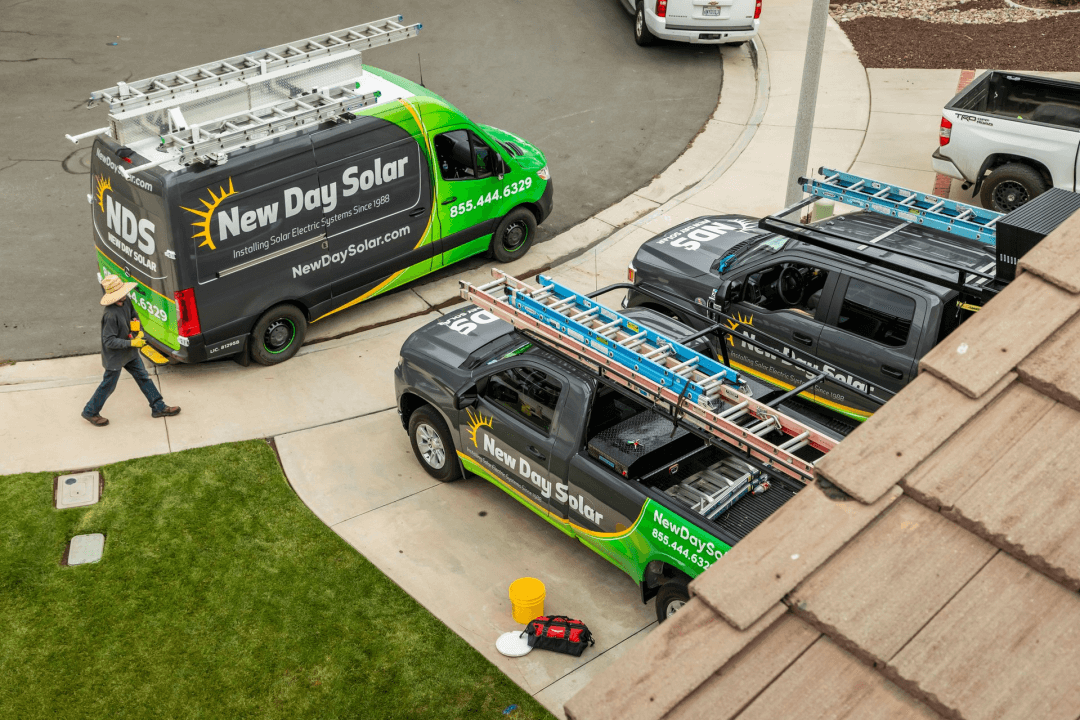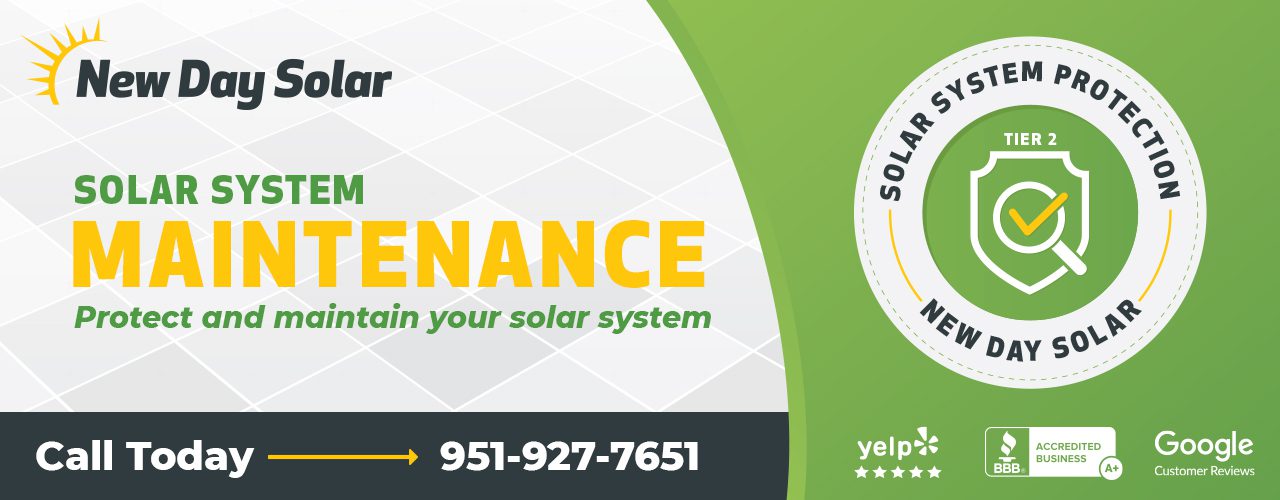What If I See A Decrease in My Solar System Output?

Harnessing solar energy through photovoltaic (PV) systems has become increasingly popular for homeowners seeking to reduce their carbon footprint and lower their energy bills. However, understanding the intricacies of solar panel efficiency and degradation is crucial for ensuring optimal performance and longevity of solar installations.
Here, we explore the factors that affect solar panel output, including efficiency, degradation, and maintenance practices. Whether you’re considering installing solar panels or already have them on your roof, this guide provides valuable insights into maximizing the energy production of your solar system.
Understanding Solar Panel Efficiency
Solar panel efficiency refers to the ability of a solar panel to convert sunlight into usable electricity. Higher efficiency panels can generate more electricity per unit of sunlight, making them more desirable for maximizing energy production.
Efficiency is influenced by factors such as the quality of solar cells, the design of the panel, and the manufacturing process. Investing in high-quality solar panels with superior efficiency can result in greater energy output and long-term savings on electricity bills.

Exploring Solar Panel Degradation
Despite their durability, solar panels can experience degradation over time, leading to a decrease in energy output. Solar panel degradation refers to the gradual decline in performance due to factors such as exposure to environmental conditions, material aging, and internal resistance.
While most solar panels have a degradation rate of about 0.5% per year, understanding and mitigating degradation can help maintain optimal performance and prolong the lifespan of solar installations.
Some issues that affect the efficiency of solar panels and can inhibit how your solar panels work include:
- Environmental Factors:
Environmental conditions such as temperature fluctuations, humidity, and exposure to ultraviolet (UV) radiation can contribute to solar panel degradation over time. High temperatures can accelerate the aging of solar cells and decrease efficiency, while prolonged exposure to UV radiation can degrade the protective layers of solar panels, leading to yellowing or delamination. - Soiling and Shading:
Accumulation of dirt, dust, pollen, and other debris on the surface of solar panels can obstruct sunlight and reduce energy production. Similarly, shading from nearby trees, buildings, or structures can cast shadows on solar panels, causing localized drops in output. Regular cleaning and pruning can help mitigate these issues and maintain optimal energy production. - Material Degradation:
Over time, materials used in solar panels, such as silicon wafers, encapsulants, and back sheets, may degrade due to exposure to environmental stressors, thermal cycling, and moisture ingress. Degradation of these materials can compromise the structural integrity and performance of solar panels, leading to reduced efficiency and output. - Microcracks and Cell Damage:
Microcracks, fractures, and cell damage can occur during manufacturing, transportation, installation, or operation of solar panels, compromising their electrical conductivity and efficiency. Microcracks can propagate over time due to thermal expansion and contraction, leading to further degradation and reduced output. Regular inspection and quality control can help detect and mitigate these issues. - Inverter Issues:
Inverters play a crucial role in converting DC electricity generated by solar panels into usable AC electricity for home consumption. Inverter failures or malfunctions can lead to decreased energy production and system downtime. Common issues include overheating, component failure, and software glitches. Regular inspection, maintenance, and timely replacement of inverters can help prevent disruptions to solar panel output and ensure consistent energy production. - Cell Cracking:
Cell cracking can occur due to mechanical stress, thermal cycling, or mishandling during installation or maintenance. Cracks in solar cells can compromise their electrical conductivity and structural integrity, leading to decreased efficiency and potential hot spots. Careful handling, proper mounting techniques, and regular inspection can help prevent cell cracking and preserve panel performance. - Environmental Degradation:
Solar panels installed in harsh environments, such as coastal areas or regions with high levels of air pollution, may be more susceptible to environmental degradation. Exposure to saltwater, sand, dust, and pollutants can accelerate corrosion, discoloration, and material degradation, impacting panel efficiency and lifespan. Choosing panels with robust construction and corrosion-resistant materials can help mitigate environmental degradation and ensure long-term performance. - Manufacturing Defects:
Despite stringent quality control measures, solar panels may occasionally exhibit manufacturing defects that affect their performance and reliability. Common defects include soldering defects, delamination, and cell cracks. Manufacturers typically offer warranties to cover defects in materials and workmanship, providing homeowners with recourse in case of faulty panels. Thorough inspection and testing during installation can help identify and address manufacturing defects early. - Aging and Wear:
Like any electrical device, solar panels experience wear and aging over time, leading to gradual degradation of materials and components. This can manifest as reduced efficiency, output, and reliability over the lifespan of the panels. Regular performance monitoring, maintenance, and periodic system upgrades can help mitigate the effects of aging and wear, ensuring continued energy production and system reliability.
The Role of Installation and Maintenance
Proper installation and regular maintenance are essential for optimizing solar panel performance and longevity. Solar panels should be installed by qualified professionals following best practices to ensure optimal orientation, tilt, and wiring.
Regular inspection and cleaning can remove debris, dirt, and grime that may obstruct sunlight and reduce energy output. Additionally, monitoring system performance and addressing any issues promptly can prevent further degradation and ensure consistent energy production.
Assessing Warranty Coverage
When investing in solar panels, it’s essential to consider the warranty coverage provided by the manufacturer and installer. A robust warranty can provide peace of mind and financial protection against defects, performance issues, and premature degradation.
Understanding the terms and conditions of the warranty, including coverage duration, exclusions, and maintenance requirements, can help homeowners make informed decisions and protect their investment in solar energy.
Maximizing Solar Energy Production
Maximizing solar energy production involves optimizing system design, performance, and usage patterns. This includes selecting the right solar panels, maximizing sun exposure, and implementing energy-saving practices to minimize consumption.
Additionally, integrating energy storage solutions, such as solar batteries, can further enhance energy independence and resilience to power outages.
Troubleshooting Common Issues
Despite careful planning and maintenance, solar panel systems may encounter issues that affect energy production. Common issues include inverter failure, wiring problems, and module degradation.
Troubleshooting these issues requires technical expertise and may involve diagnostics, repairs, or component replacements. Working with a reputable solar installer and staying proactive with maintenance can help address issues quickly and minimize downtime.

Need a Solar Installer? Get a Free Quote!
Here at New Day Solar, we can help mitigate degradation rate and slow the drop in power of your solar system giving you the highest possible solar system production. If you are having problems with your solar panel’s power output, feel free to contact us for help!
Filed Under:
have questions?
Schedule a consultation with Our Solar Experts
Find out more with an honest, no pressure consultation
with our team of solar experts.
